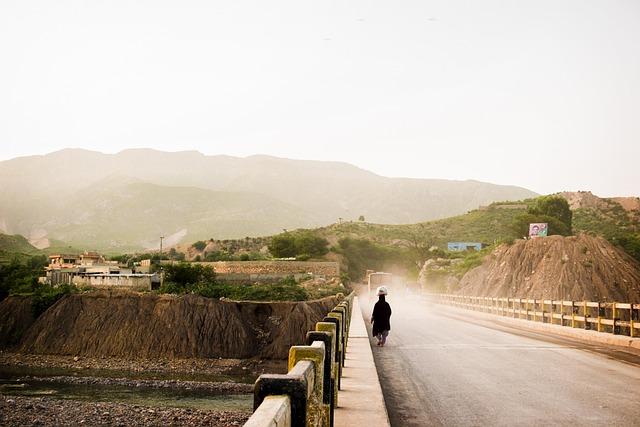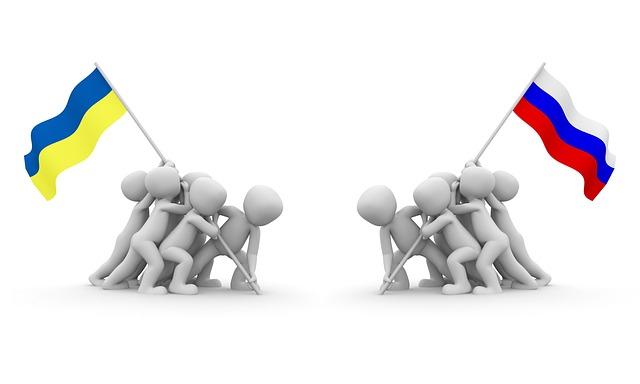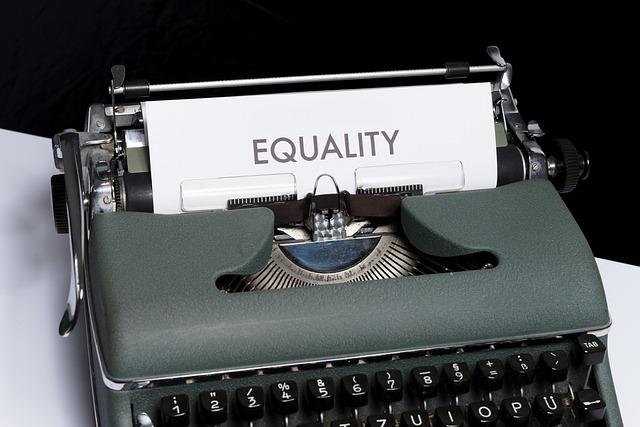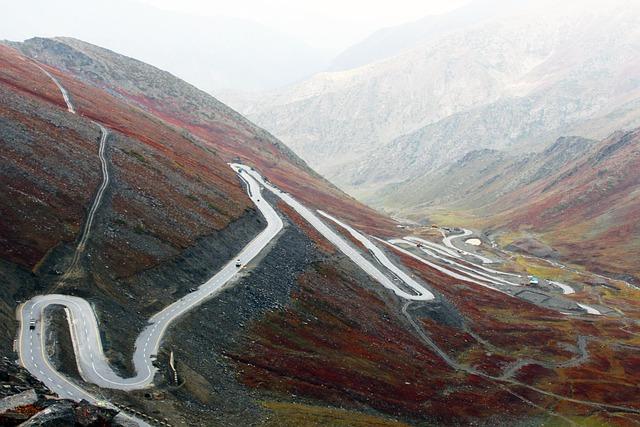Title: Pakistan’s Growing Role in Global International Relations Dynamics
As the world pivots on the axis of geopolitical change, certain nations are emerging as pivotal players in the intricate web of international relations. Among these, Pakistan stands out for its strategic positioning and multifaceted relationships that are reshaping not only its own landscape but also influencing regional stability and global interactions. From its historical ties with neighboring countries to its evolving partnerships with major powers, Pakistan’s role in the dynamics of international relations is both complex and vital. This article delves into the factors driving Pakistan’s ascent in global affairs, exploring how its policies, economic initiatives, and diplomatic maneuvers are contributing to a nuanced redefinition of its place on the world stage. As we navigate through the intricate layers of politics, economics, and security, it becomes clear that understanding Pakistan’s growing influence is essential to grasping the broader shifts in global dynamics.
Pakistans Strategic Geopolitical Position: Navigating Regional Tensions and Opportunities
Situated at the crossroads of South Asia, Central Asia, and the Middle East, Pakistan’s strategic location offers it a unique position to engage in international diplomacy. The nation serves as a vital corridor for trade and energy, connecting landlocked Central Asian nations to international markets via the Arabian Sea. This pivotal role enhances Pakistan’s significance in regional geopolitical equations, allowing it to act as a facilitator for economic initiatives, such as the China-Pakistan Economic Corridor (CPEC), which aims to boost trade connectivity between China, South Asia, and beyond. Through such initiatives, Pakistan not only strengthens its economic footing but also positions itself as an essential player in global supply chains.
However, this strategic advantage is accompanied by challenges stemming from regional tensions. The ongoing conflicts in Afghanistan and the complex relationships with neighboring India and Iran heighten the stakes for Pakistan, compelling it to adopt a careful diplomatic approach. By fostering collaboration through multilateral organizations and emphasizing economic partnerships, Pakistan seeks to mitigate regional conflicts and expand its influence. The country is increasingly acting as a mediator in contentious dialogues, leveraging its relationships to promote stability and security, which aligns with international interests in a peaceful South Asian landscape. Opportunities abound for Pakistan to redefine itself not just as a regional actor but as a pivotal nation in the broader context of international relations.

Economic Diplomacy: Leveraging Trade Partnerships for Global Influence
The rising significance of Pakistan in the landscape of global commerce is not merely a reflection of its geographical location but also of its strategic alliances that facilitate economic diplomacy. By fostering robust trade partnerships, Pakistan is positioning itself as a pivotal player in international relations, particularly within regions such as South Asia, Central Asia, and beyond. With initiatives like the China-Pakistan Economic Corridor (CPEC) and collaborations with the Gulf Cooperation Council (GCC), Pakistan is poised to leverage trade not just for economic gain, but also as a means to enhance its political clout on the international stage.
As Pakistan navigates through its foreign relations, the benefits of such partnerships are manifold. Countries engaging with Pakistan can unlock opportunities for investment and development in various sectors, including infrastructure, energy, and technology. This, in turn, generates a symbiotic relationship that promotes mutual growth and stability. Highlighted below are key aspects of Pakistan’s trade partnerships that underscore its expanding role in global dynamics:
- Strategic Economic Zones: Development of multiple SEZs aimed at attracting foreign investment.
- Trade Agreements: Bilateral and multilateral agreements to diminish trade barriers.
- Energy Cooperation: Enhancing energy supplies through cross-border initiatives.
- Silk Road Initiative: Contributing to China’s Belt and Road Initiative, thus integrating further into global trade networks.

Cultural Diplomacy and Soft Power: Enhancing Pakistans Global Image
In recent years, Pakistan has increasingly recognized the importance of cultural diplomacy and soft power as essential tools for improving its global image. By engaging in cultural exchanges, promoting the rich heritage of its diverse communities, and fostering educational partnerships, Pakistan is working to reshape perceptions and build connections worldwide. The country’s vibrant arts, cuisine, and traditions serve as bridges to foster understanding, while initiatives like the Pakistan National Council of the Arts highlight the nation’s commitment to sharing its cultural richness. These efforts not only enhance Pakistan’s standing but also combat stereotypes, demonstrating that cultural dialogue can be a catalyst for positive change.
As Pakistan embraces its cultural assets, collaboration with international organizations and participation in global forums become vital. The country has taken part in various cultural festivals and academic exchanges, which promote the message of peace and cooperation. Furthermore, leveraging digital platforms to showcase Pakistani art, literature, and music offers a modern avenue for cultural diplomacy. The following table summarizes some key cultural initiatives that contribute to Pakistan’s soft power strategies:
| Initiative | Description | Impact |
|---|---|---|
| Cultural Festivals | Annual events showcasing Pakistani arts and culture | Increased visibility and global interest |
| Education Partnerships | Collaborations with foreign universities | Enhanced academic exchange and mutual understanding |
| Digital Showcases | Online exhibitions of Pakistani creativity | Broadened access to global audiences |

Climate Change and Sustainability: A New Frontier for International Leadership
Pakistan is increasingly positioning itself as a pivotal player in the realm of global international relations, particularly as the urgency of climate change escalates. As a nation that’s both vulnerable to and significantly affected by climate variability, Pakistan is stepping up to advocate for sustainable development agendas on international platforms. The country’s diverse ecosystems are under threat, yet its strategic initiatives demonstrate a commitment to addressing these challenges proactively. By promoting renewable energy projects and engaging in climate diplomacy, Pakistan aims to enhance its global standing while fulfilling its national responsibilities in sustainability.
In a concerted effort to foster collaborative relations, Pakistan is actively participating in international forums, such as the UN Climate Change Conference and regional alliances focused on environmental sustainability. The nation’s leadership is engaging with various stakeholders to implement strategies that not only address climate risks but also drive economic growth. These initiatives include:
- Afforestation programs to combat desertification and enhance biodiversity.
- Investment in solar and wind energy to transition towards a greener energy matrix.
- Water management projects aimed at optimizing usage in agriculture and daily consumption.
Through these efforts, Pakistan is not only working towards climate resilience at home but is also seeking to influence global discussions, thereby reinforcing its emerging role as a leader in sustainable practices.
To Conclude
As we conclude our exploration of Pakistan’s evolving role in the intricate tapestry of global international relations, it becomes clear that this South Asian nation occupies a unique position at the crossroads of geopolitical interests. With a rich history, diverse culture, and strategic geographic location, Pakistan is poised to emerge not just as a regional player but as a key contributor to the broader international discourse.
In navigating the challenges and opportunities that lie ahead—be it through economic partnerships, diplomatic engagements, or addressing pressing global issues such as climate change and security—Pakistan is not merely reacting to external influences; it is actively shaping its narrative on the world stage.
As the dynamics of power shift and alliances are redefined, the trajectory of Pakistan’s foreign relations will undoubtedly influence regional stability and global cooperation. The journey ahead may be fraught with complexities, but it also holds the promise of collaboration and mutual growth. In this ever-evolving landscape, the actions taken today will echo in the international arena for generations to come, marking Pakistan’s place in the annals of global diplomacy. The horizon is wide, and the future is a canvas yet to be painted—a testament to the potential of a nation increasingly asserting its voice in the world.



